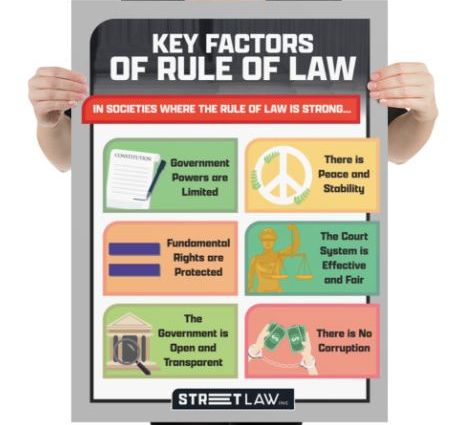
The Rule of Law
It's Now Optional
Apparently it is still a thing. However, it's only a thing if those in power want it to be.
About the New Rule of Law
Things Have Changed
I was a senior in high school in 1980-81 and I remember sitting through Government class, which was held in a trailer in the parking lot that year. We were either overcrowded, or there was construction happening. I don't think that anyone was really excited about government class, including me. I remember being taught that our country prided itself on the Rule of Law (RoL). 1980 was an election year, and in January 1981 we were reminded that that there would be an "orderly transition of power" when President Reagan replaced President Carter. This orderly transition of power, an aspect of the RoL, distinguished the United States from other countries. This was all painfully obvious to me and my classmates, but we weren't nearly as impressed by it as our teacher.
WHAT'S THE RULE OF LAW?
Dictionary.com: The principle that all people and institutions are subject to, and accountable to, law that is fairly applied and enforced; the principle of government by law.
In my government class, we learned that RoL was what kept the police, or government, from bursting into our homes and dragging us off to prison for no reason, as apparently happens with regularity in some other countries. We learned that we all have rights that provide us with protection from our own government. We are presumed innocent of crimes until proven guilty; we have the right to be represented in a trial, we have the right to remain silent rather than incriminating ourselves, and many other rights. Once again, all of us brilliant H.S. seniors knew all of this, and it was a struggle to keep our eyes open.
CURRENT RULE OF LAW IN THE U.S.
We can all agree that, if someone breaks into your house and steals your possessions, that person has broken a law and should face severe consequences. To me and most others, other serious criminal offenses such as assault, vandalism, arson, etc. are clearly violations of the law and should be punished. Illegally crossing our national border is, by definition, is obviously illegal.
However, during the year 2020 we saw many obvious crimes committed without any criminal consequences. We watched, live on TV, as hundreds of people broke down the glass doors of businesses, then carried off all of the merchandise they could handle. This has become a regular occurrence in our country. We watch videos of people setting fire to buildings and cars, without any police intervention. We watched as groups in Seattle took over a police station, burned police cars, and claimed ownership of a large part of the downtown. This siege ended on their own terms, with few, or no, consequences from the government. Crime has been legalized to a large extent in major cities of the USA.
CONCLUSION
The conclusion is obvious - the United States can no longer claim to be subject to the Rule of Law. Clearly, we are not. It is more true to say that the Rule of Law is exercised on a discretionary basis in the United States by federal, state, and local government. If a well-established crime is committed against you, that crime may, or may not, be enforced at the discretion of a government authority. If not, that's just tough luck for you.
Not too long ago, a person in the U.S. might have done some research on a foreign country before planning a visit. Our Department of State would generally have a list of countries that were considered unsafe for an American to visit. We're now on that list for all other countries.